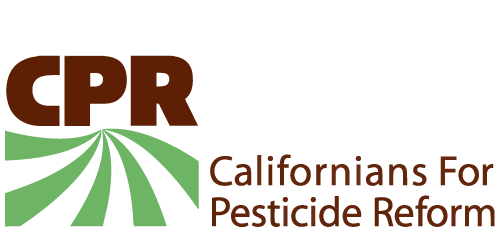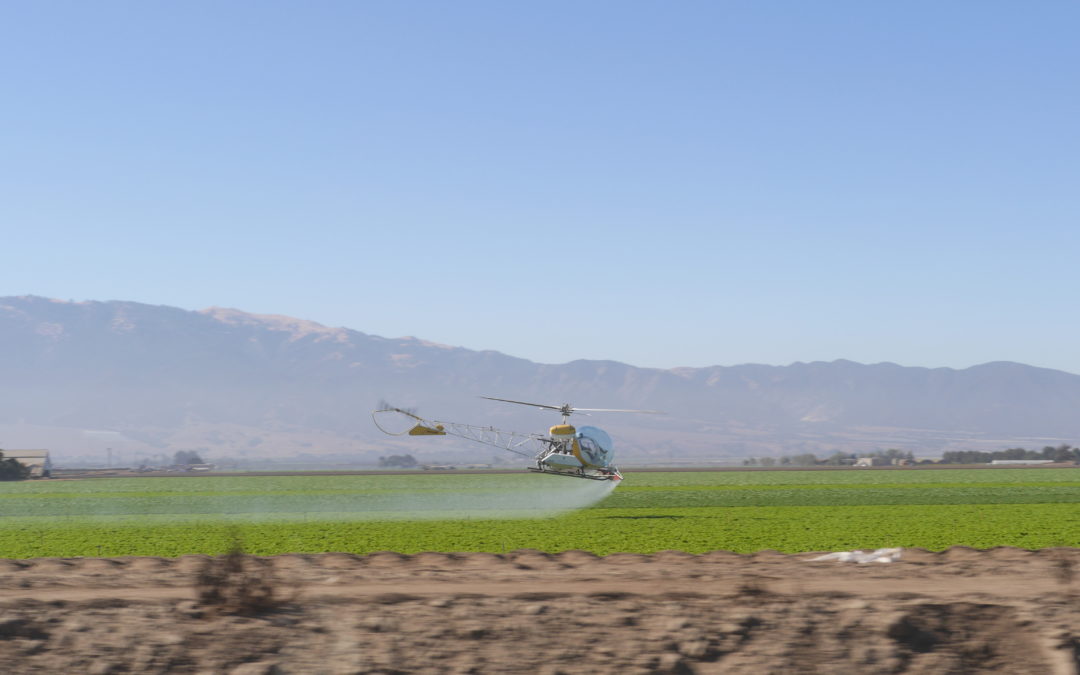No apparent violation of the law in almost one-third of poisoning incidents points to the need for greater protections and notification
Sacramento, CA: Before the Covid-19 pandemic starkly exposed the unique vulnerability of “essential” food system workers, farmworkers already faced a daily threat of chemical poisoning in their workplace and communities. Pesticide use continues to take a grim toll on the health of vulnerable farmworkers and other rural residents in California, with 482 people sickened by agricultural pesticide exposure in 2017, according to pesticide illness data just released by the California Department of Pesticide Regulation.
Two-thirds of those poisoned by agricultural pesticides in 2017 were farmworkers, a total of 323 workers in 34 separate incidents, with the worst incident sickening 92 workers in Kern County. A total of 1,342 people were injured by all types of pesticide exposure in 2017. The annual report, released almost three years after the incidents occurred, documents all illnesses related to pesticide exposure reported to the state. The illness report for 2020 is not expected to be released until 2023.
The reported numbers represent a concerning increase over the prior year, when 978 people were poisoned, 135 of them farmworkers. Despite the claim in the report that “the number of associated episodes and cases have been relatively consistent since 2011,” the number of farmworkers poisoned was more than double the prior year’s total – an astonishing 139% increase. Total cases, including non-agricultural cases, rose by 37% in a single year.
The report found that almost a third of the agricultural episodes, 29 out of 98, were in apparent compliance with label instructions and all applicable regulations, casting serious doubt on the rigor of California’s pesticide regulatory system.
“This report illuminates what we’ve long known about pesticide regulation in California – the state simply fails to protect farmworkers, pesticide handlers and the residents of agricultural communities. This report should be a wake up call to adopt ways of growing food that don’t harm the people that grow it,” said Anne Katten, Pesticide and Work Safety Project Director at California Rural Legal Assistance Foundation.
Advocates for public health and farmworker safety note that pesticide exposure is a needless and preventable hazard, compounding the many other threats faced by these essential workers, including heat, wildfire smoke and elevated risk of exposure to COVID-19.
For residents of agricultural communities, exposure to pesticides is a constant threat. In California, there is no right to know in advance about nearby pesticide use, which would provide an opportunity to take protective steps such as staying indoors or closing the windows.
“Amid a pandemic, where we are finally facing the shocking vulnerability of our essential workers who are literally putting their lives on the line to keep us all fed, this report is sobering,” said Lupe Martinez, assistant director of Delano-based Center on Race, Poverty and the Environment. “Pesticide exposure overwhelmingly impacts poor people and people of color. The injustice of pesticide poisoning is a needless and unconscionable moral stain on our state. At the very least we deserve to know when these toxic chemicals are being used nearby.”
Pesticide drift is illegal in California, and all pesticide-related illnesses are required by law to be reported by medical providers to the state. The illnesses documented in the report likely greatly understate the extent of the problem, as many illnesses go unreported and the contribution of pesticide exposure to chronic illnesses is not documented.
“Pesticide drift is the harsh reality of conventional agriculture. Drift may be illegal but it is almost inevitable when highly volatile and poisonous chemicals are sprayed in the quantities we see in California – more than 200 million pounds every year,” said Jane Sellen, co-director of the statewide coalition Californians for Pesticide Reform. “Until we adopt a safer way of farming that doesn’t hurt people and the environment, it’s critical that those closest to pesticide use at least be notified in advance. And when pesticides make people ill, it shouldn’t take three years for the state to report it.”

